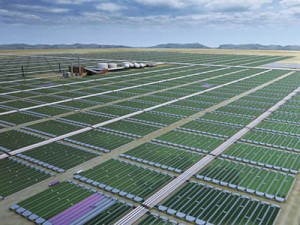US farmers are growing the first corn plants genetically modified for the specific purpose of putting more ethanol in gas tanks rather than producing more food. Aid organisations warn the new GM corn could worsen a global food crisis exposed by the famine in Somalia by diverting more corn into energy production.
The food industry also opposes the new GM product because, although not inedible, it is unsuitable for use in the manufacture of food products that commonly use corn. Farmers growing corn for human consumption are also concerned about cross-contamination. The corn, developed by a branch of the Swiss pesticide firm Syngenta, contains an added gene for an enzyme (amylase) that speeds the breakdown of starches into ethanol. Ethanol plants normally have to add the enzyme to corn when making ethanol.
 Follow
Follow
